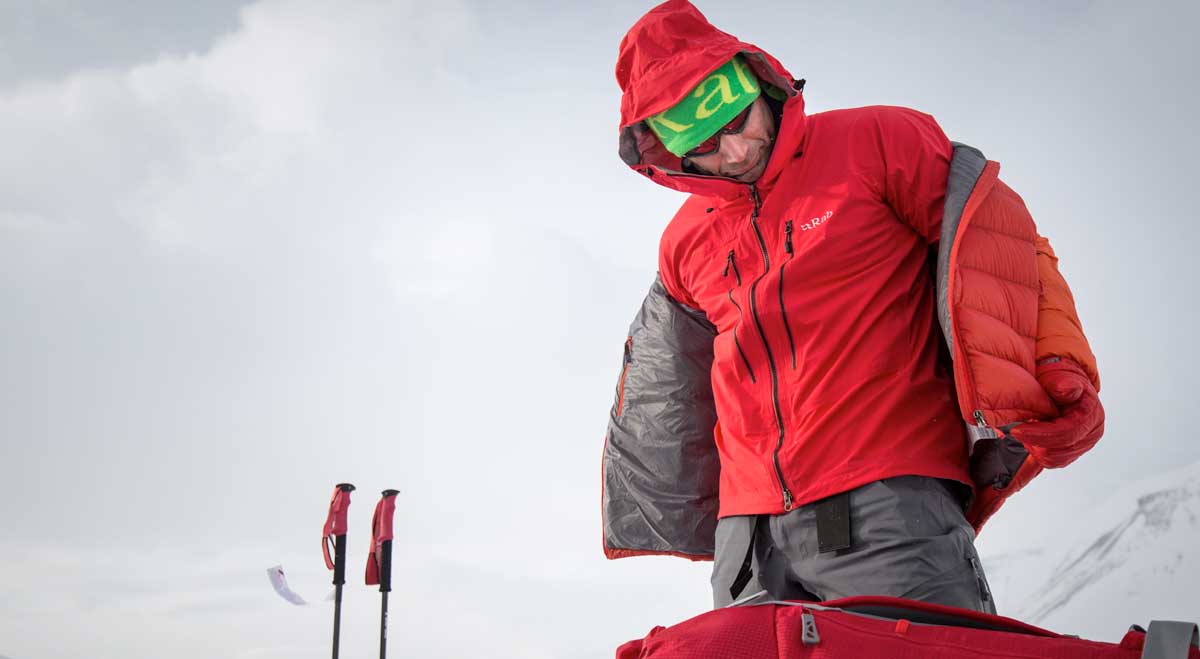Cardiff Met ambassador, polar explorer Richard Parks on what his expeditions have taught him about tolerance and personal space – and how it might just help us cope with confinement.
 Richard Parks in Antarctica
Richard Parks in Antarctica
“Most people assume my solo expeditions are the toughest. Whilst they would be right most of the time, sharing a tent on an expedition can be equally challenging. A climbing partner once said to me that you never really know somebody until you’ve shared a tent with them!
That’s not entirely true of course, but a prolonged time, under stress, in a confined space with even our most cherished loved ones and mates can challenge the most rock-like of relationships!
Whether it’s life in lockdown or remote mountains in Alaska, the challenges can be much the same!
Over the last decade I’ve spent almost a year, in total, sharing a tent. I’ve made some awesome friends, and lost a couple too. None of us are perfect (life in lockdown is tough enough without unrealistic expectations on how to manage kids or productivity - often fuelled by social media) but these are the two ideas that jump to mind which have helped me over the years.
Honesty. My first thought is recalibrating to a new level of honesty. ‘How are you doing?’ means something entirely different in lockdown, just as it does when you’re shoulder to shoulder in tent at 8,000m, in the death zone.
Confined spaces and long periods of time spent in small teams can amplify personalities and emotions. Being able to surface conflict quickly so that a collective solution can be found is easier said than done, but key to high performance in dynamic environments. This requires direct communication and importantly, the creation of a safe environment in which to communicate honestly without judgement.
Our confidence to ask for help, ask for something to be done differently or say that we don’t have the answer without fall-out or consequence can prevent festering resentments.
It’s about being solution focused. This transparency of emotion and honesty can make us feel vulnerable. It’s not easy or comfortable at first, but with empathy, self-awareness and an equal responsibility in how the message is delivered and received, it can be powerful. We don’t know when the finish line will come in lockdown, so it’s important for us to nip things in the bud and create safe environments to be ourselves.
Space. Often, it’s only when something is taken away that we truly appreciate it. The loss of your personal space is the first shock to the system in a tent. It’s very difficult to protect your modesty when you have to pee, or simply not be at be your best in the confined space with others.
I have spent almost every moment of every solo expedition wishing I could share it with my family, yet despite my love for them, seven weeks of lockdown in our home has highlighted just how much we all need some time alone. Especially with a very busy two-year-old in the flat! The moments for some space are a low bar - an uninterrupted shower, slow coffee to wake up with or 30 minutes to catch-up with mates on WhatsApp!
During Project Everest in 2016 we used our headphones as a signal that we wanted to be left alone. We were a team of four in Nepal for almost two months. Even if we weren’t listening to tunes, when one of the team were wearing their headphones, we knew that they needed some space. It was a game changer in protecting our resilience with each other.
Doing something nice for your tent partner every day – a coffee in the morning, perhaps – and saying thank you when they did something for you went a long way. Feeling appreciated, part of something bigger, can make us so much more tolerant when our tent partners are annoying us!
None of us have the solution, none of us are at our best all the time, we’re all just trying to get by the best we can. At its core, so much of this is about being kind to ourselves and each other.”
